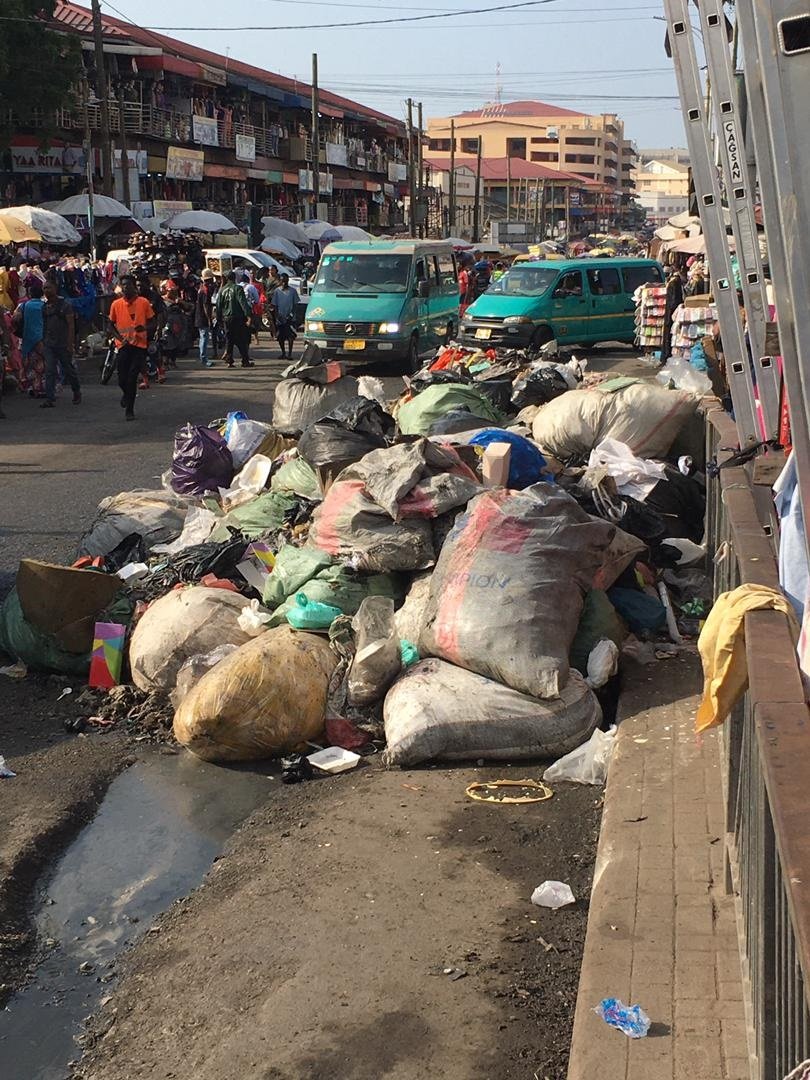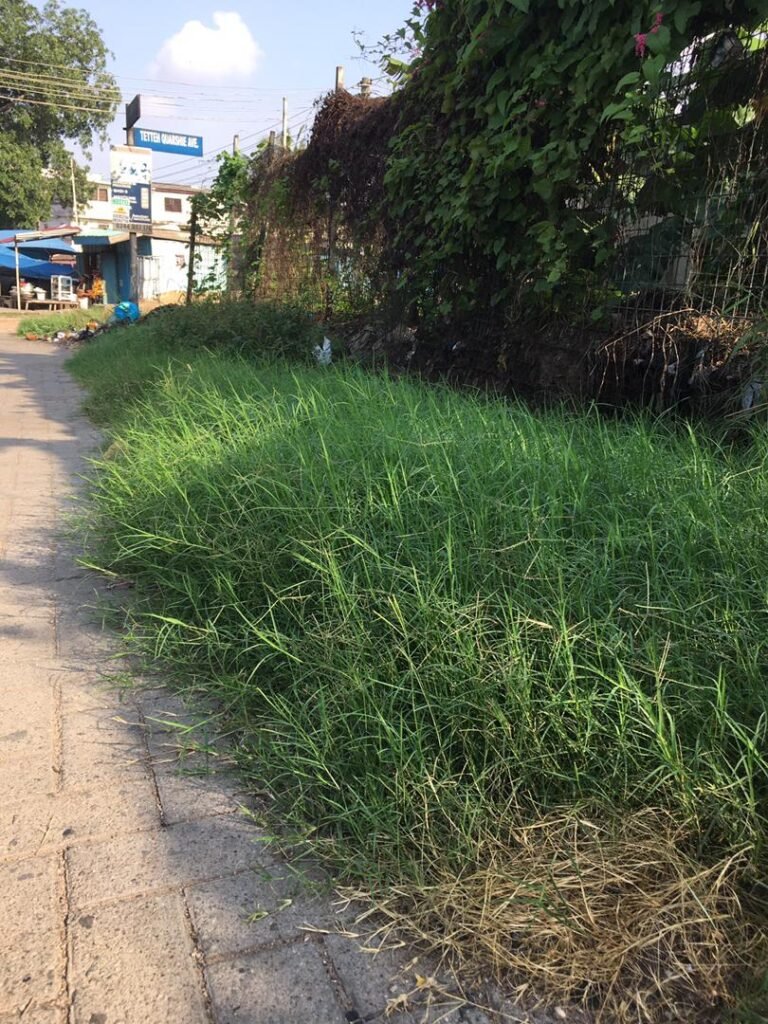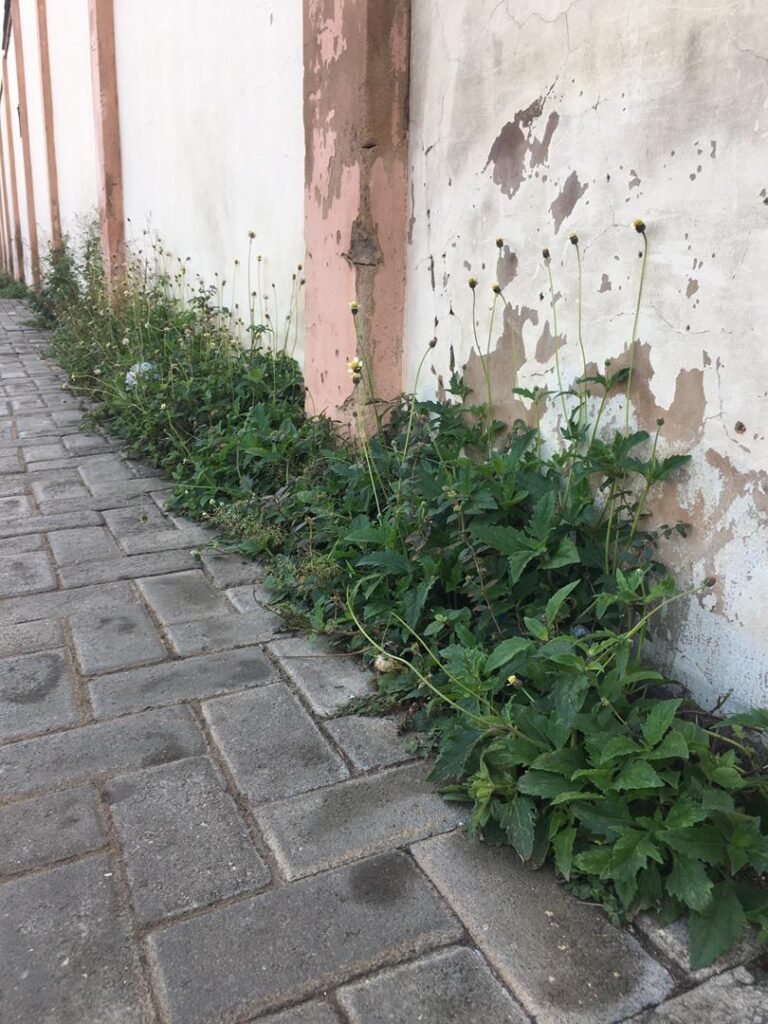Editorial
Urgent call to address sanitation, environmental neglect at Legon City Campus, Makola-Tudu Junction

Dear Editor
Ghana is grappling with mounting sanitation and environmental neglect and as a concerned citizen and advocate for a cleaner, safer and more presentable academic environment, I feel compelled to highlight disturbing issues I encountered during a recent visit to the enclave of Workers College, currently operating as Legon City Campus of the University of Ghana as well as Accra Central, specifically the stretch from Makola towards Tudu, just after the Ghana National Fire Service office.

At the Legon City Campus, formerly known as Workers College, widespread overgrowth of weeds along campus walls and walkways poses both safety and structural risks.
The unchecked vegetation is encroaching on pedestrian pathways and threatening the stability of surrounding walls.
Behind the campus, near the road to Adabraka and Liberia Road, garbage and overgrown weeds have turned the area into an eyesore, undermining the prestige of one of Ghana’s premier universities.
The environmental degradation reflects poorly on the institution’s leadership and jeopardizes student and community health.
I would like to urge the University of Ghana Estate Department to act immediately, clearing the weeds, reinforcing structural elements, cleaning the garbage-strewn areas, and establishing a consistent maintenance schedule.
This will ensure safety, institutional pride and civic responsibility.
In Accra Central, a similar crisis is festering. A growing heap of refuse near the Makola-Tudu Junction, just past the Ghana National Fire Service office has overwhelmed pedestrian walkways and spilled into vehicular lanes.
This not only causes human and traffic congestion but also creates a hazardous public health situation in one of the city’s busiest commercial zones.
As a tour guide and advocate for Ghana’s tourism industry, this development has damaging impact on the country’s image.
Tourists encountering filth in the capital’s core are left with a negative impression, counteracting national efforts to boost tourism.
I therefore call on the Accra Metropolitan Assembly (AMA), Osu Klottey Municipal Assembly, and sanitation agencies to enforce waste management laws, improve public hygiene infrastructure and revive the National Sanitation Day initiative to foster civic responsibility.
It is time for authorities at all levels to demonstrate leadership and restore dignity to these vital spaces. The status quo is no longer acceptable.
Frederick Nortey (Traveler, Tour Guide, Blogger, Writer)
Accra
Editorial
Parents urged to take responsibility for sex education
Dr. Francis Wuobar, a Gynaecologist at the Eastern Regional Hospital in Koforidua has urged parents to take the lead in providing sex education to their children, stressing that they were in the best position to guide them through the changes of adolescence.
According to him, sex education remained a taboo subject in most Ghanaian homes, a culture that must change to prevent children from seeking misleading information elsewhere.
“With the evolving nature of society and technological advancements, today’s children will either learn about sex on the internet or from their peers, who may offer wrong advice,” he cautioned.
Dr. Wuobar noted that the health system and society often concentrate on the reproductive stage of life, neglecting the adolescent and menopausal phases.
“When a woman reaches the reproductive period and gets pregnant, everyone rallies around her. But before that stage, during adolescence, there is little attention and guidance, which has contributed to the rising cases of teenage pregnancy,” he explained.
He observed that many adolescents lack access to counseling and adolescent clinics, creating a vacuum that forces them to explore on their own.
“The answers they seek, adults and parents are not willing to provide. Their peers, who are equally uninformed, become their only source of advice. This exploration is one of the major contributors to teenage pregnancy,” he said.
Dr. Wuobar therefore called on parents to create open and confidential spaces for discussion, where children can freely ask questions about sex, puberty, and relationships.
He emphasized that parents must help adolescents understand the consequences of unprotected sex, the changes they go through, and what choices were right or wrong.
“Today’s generation is curious and asks questions, unlike in the past when children were silent. Parents should not rebuke them but rather engage them seriously and guide them through this turbulent stage,” he advised.
He further appealed to the health sector to establish more adolescent clinics across the country to give young people safe spaces to seek information and counseling.
That, he said, would help reduce the high incidence of teenage pregnancy and support adolescents in making informed decisions about their sexual health.
From Ama Tekyiwaa Ampadu Agyeman, Koforidua
Editorial
Addressing unhealthy conditions at Akropong Mandela Market

Dear Editor,
The Akropong Mandela Market, a vibrant centre of commerce, has been in a terrible state for over a decade now.
Central to the problem is a public toilet located near the market, which has become a breeding ground for diseases and a source of discomfort for both food vendors and customers.
This toilet, utilised by everyone in the town, is positioned too close to the market, severely affecting the vendors who spend long hours selling their goods.
They are constantly exposed to unsanitary conditions mixed with foul odours emanating from the facility.
Agnes, a vendor at the market is sad about the apparent lack of concern from those responsible for maintaining the toilet. Despite collecting user fees, there seems to be little effort to keep the facility clean and hygienic.
The situation at the Akropong Mandela Market highlights the urgent need for effective waste management and sanitation infrastructure in public spaces.
Authorities must take immediate action to ensure the facility is regularly maintained and cleaned. Vendors and customers deserve a safe and healthy environment to conduct their daily activities.
In the meantime, the vendors are urging local government officials to intervene and find a lasting solution to this problem.
Only through collective action can the health and well-being of both vendors and customers be safeguarded to restore the Akropong Mandela Market to its former glory as a thriving commercial hub.
Addo Sarah Ansah Student,
UNIMAC–IJ(BACS26275)
Join our WhatsApp Channel now!
https://whatsapp.com/channel/0029VbBElzjInlqHhl1aTU27






